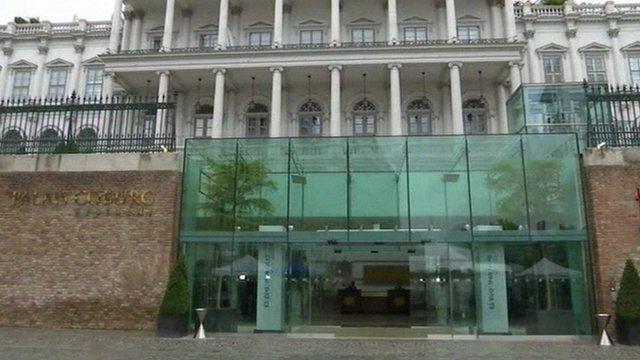Iran nuclear deal shakes Middle East media
- Published
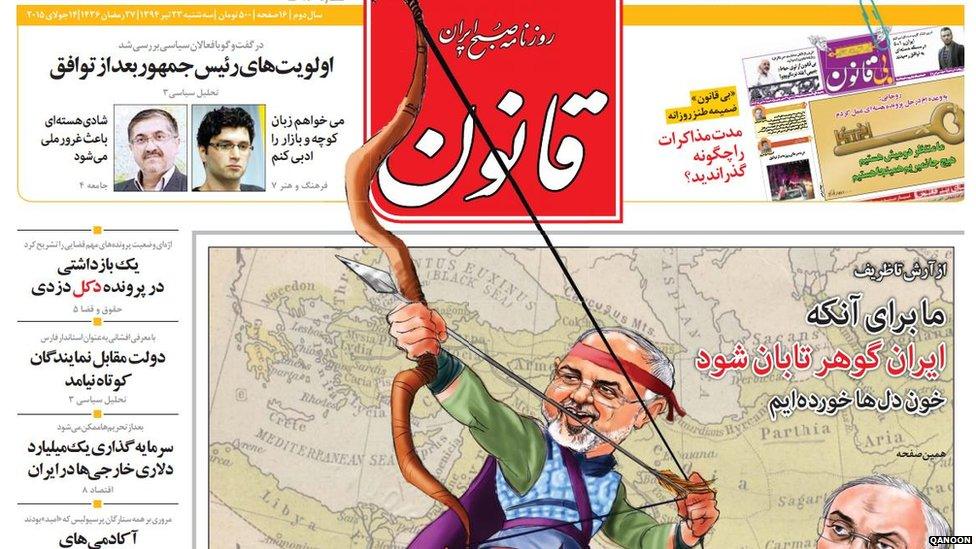
Iran's Qanoon daily compares Foreign Minister Zarif to mythical Iranian figure Arash the Archer
Middle Eastern media are abuzz over the nuclear deal agreed between Iran and world powers.
In Iran, reactions range from euphoric to critical and cautionary.
Regional media are strongly divided on the deal, but they agree on the "historic" nature of Tuesday's announcement.
Pride and prejudice
There is a sense of pride on Iran's rolling news channels IRINN and Press TV, with patriotic music videos adding colour to rolling coverage of the build-up to Tuesday's announcement.
State-owned Channel One is more reserved, presumably not to overexcite the audience over the agreement. But even Channel One is appreciative of the negotiators, while stressing that the deal came through the "resistance" of Iranians.
In their morning editions, before the deal was formally announced, Iran's moderate and reformist papers celebrated the upcoming agreement, hailing Foreign Minister Mohammad Javad Zarif as a hero of near-epic proportions.
The Qanoon newspaper carried a front-page report depicting Mr Zarif as Arash, a heroic archer figure from Iranian folklore.
"From Arash to Zarif - We endured great suffering so that Iran can transform into a shining jewel, external," said the daily.
The reformist daily Aftab-e Yazd cast Mr Zarif as Amir Kabir - a famous 19th-Century reforming prime minister.
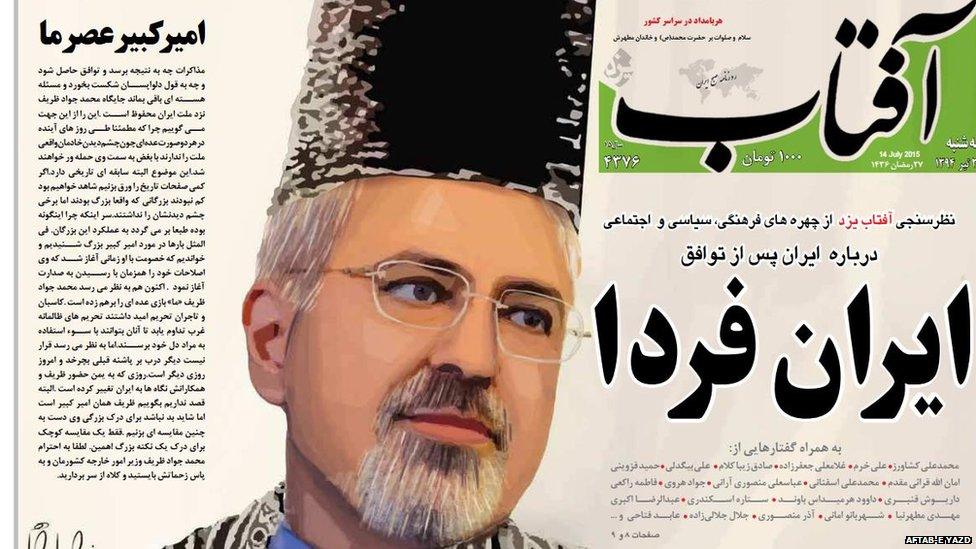
Aftab-e Yazd predicts possible opposition to the deal from Iran's hardliners
But there has also been criticism. Hardline websites and supporters of former president Mahmoud Ahmadinejad censure the deal, claiming that it violated red lines set by Supreme Leader Ayatollah Khamenei.
"Iran has always faced West's ill-intentions and sabotage, with US playing main role, external", wrote the hardline Keyhan daily.
Conservative websites also criticised pro-government news outlets for their calls for "nuclear celebrations".
#IranWinsPeace
Under hashtags #IranTalks, #IranDeal and #IranWinsPeace, Iranian web users have been rejoicing at the deal.
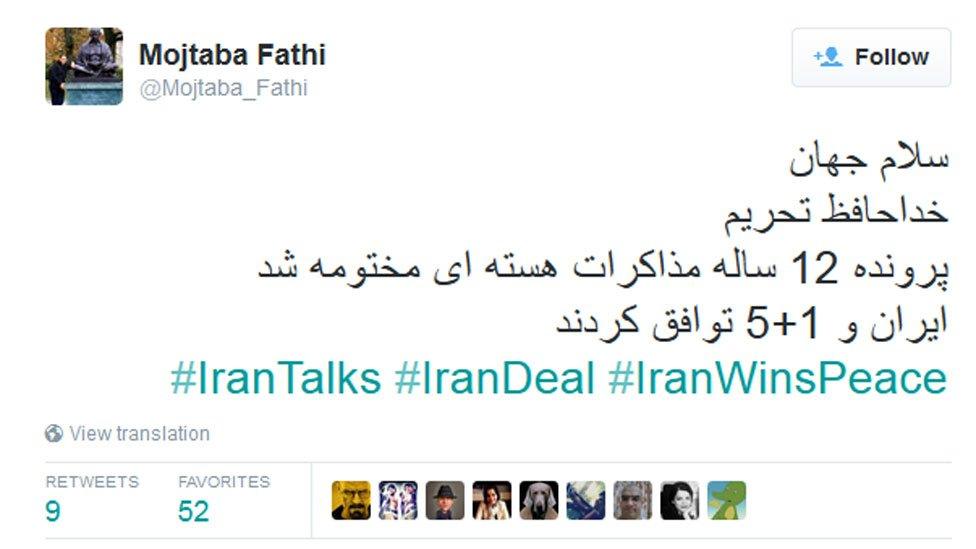
"Hello, world! Good-bye, sanctions!" tweets @Mojtaba_Fathi.
"Hello, world! Goodbye, sanctions!" tweets @Mojtaba_Fathi.
"Let us sing together: Iran, o home of hope!" says another tweet.
Persian-language Twitter is full of praise for Mr Zarif, who led Iran's nuclear negotiating team over the past two years.
"As long as the world and Iran exist, we will always be indebted to Zarif", tweets @kimiyakhsh.
Iranian nuclear negotiators too used social media, in particular Instagram, to keep Iranians updated on the nuclear talks.
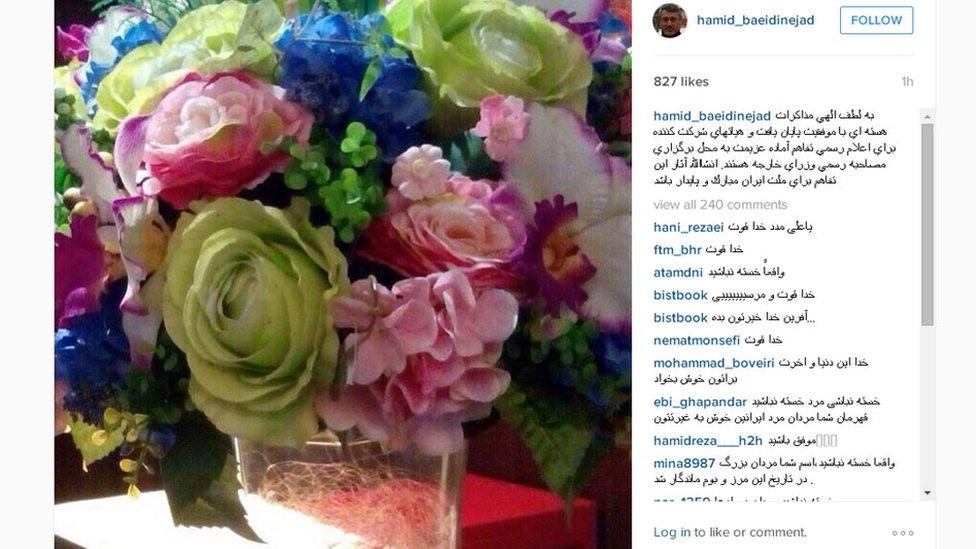
Senior Iranian nuclear negotiator Hamid Ba'idinejad says on Instagram that talks "have ended successfully"
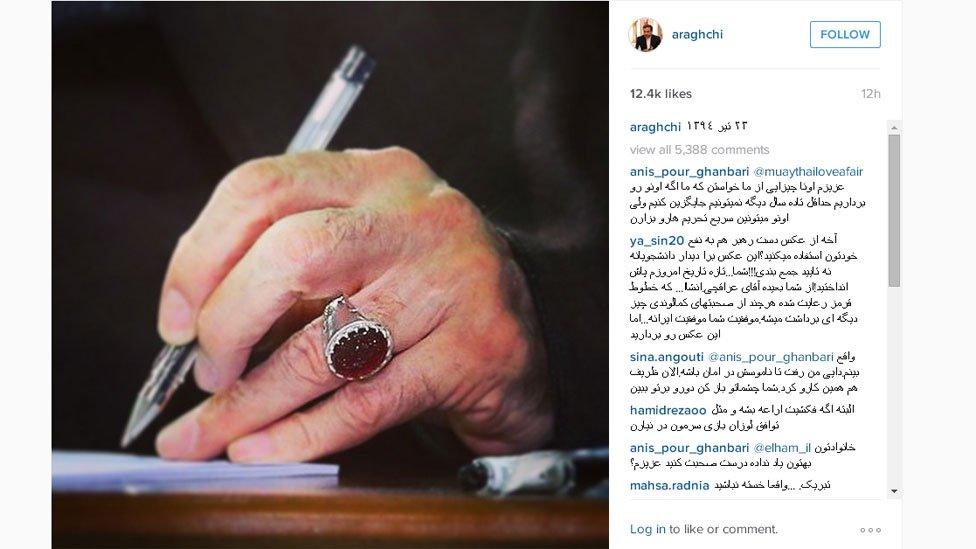
Senior Iranian nuclear negotiator Abbas Araqchi posted a "deal-signing" photo on Instagram
Middle East 'not the same after deal'
Middle Eastern media, too, focus on the Iran deal.
In their morning editions, the Middle East Arabic press discussed the impacts of the imminent agreement, agreeing that it affects the entire region.
"The Middle East would not be the same after the deal, external," wrote the Lebanese al-Mustaqbal daily.
Jordan's al-Rai said the "historical" deal means the "high possibility of new alliances, external".
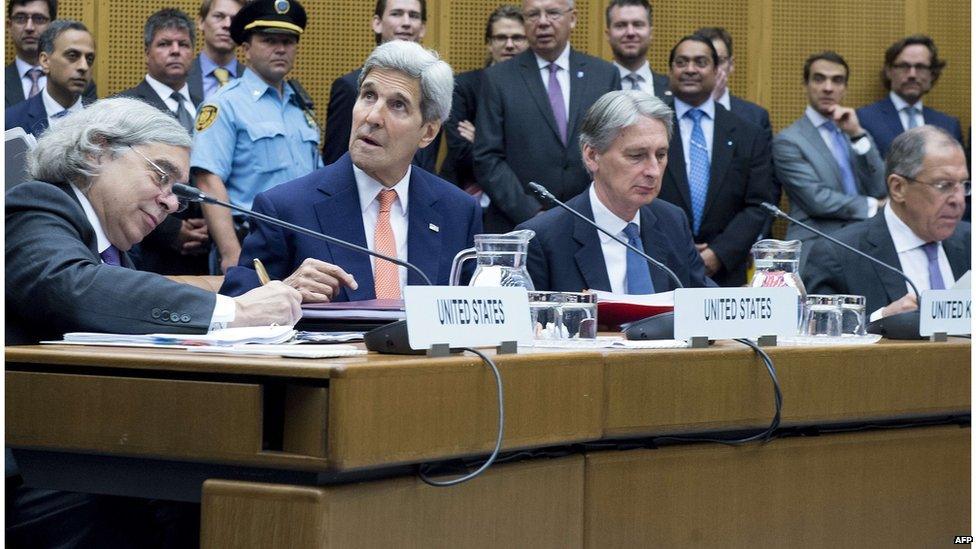
UK Foreign Secretary Philip Hammond (centre right) and US Secretary of State John Kerry (centre left) attend talks in Vienna
Gulf papers, however, expressed doubts, with an editorial in Qatar's al-Watan saying the deal would be "a defeat for Iran and its soft powers. It will also allow the Arab region to move to a new stage of strength and stability, external".
'Shameful' deal
In Israel, the media are divided in their response.
Pro-government freesheet Yisrael Hayom calls the agreement "shameful", adding that the US Congress is Israel's "last hope" of preventing the deal.
"The US Senate can rescue Israel from the Iranian nuke, but mainly rescue the West from one of the most shameful surrenders in history, external," writes its commentator Boaz Bismuth.
Liberal Haaretz says the deal "breaks a political taboo".
"The agreement over Iran's nuclear project is the result of unprecedented talks between equals that also won international recognition for the Islamic revolution, external," writes commentator Zvi Bar'el.
Writing in the Jerusalem Post, Herb Keinon highlights Israeli Prime Minister Benjamin Netanyahu's anger at the deal.
"The final year of the [US President Barack] Obama-Netanyahu era, therefore, most likely will be more fraught than even the seven years that came before, external," says the paper.
BBC Monitoring reports and analyses news from TV, radio, web and print media around the world. You can follow BBC Monitoring on Twitter, external and Facebook, external.
- Published14 July 2015
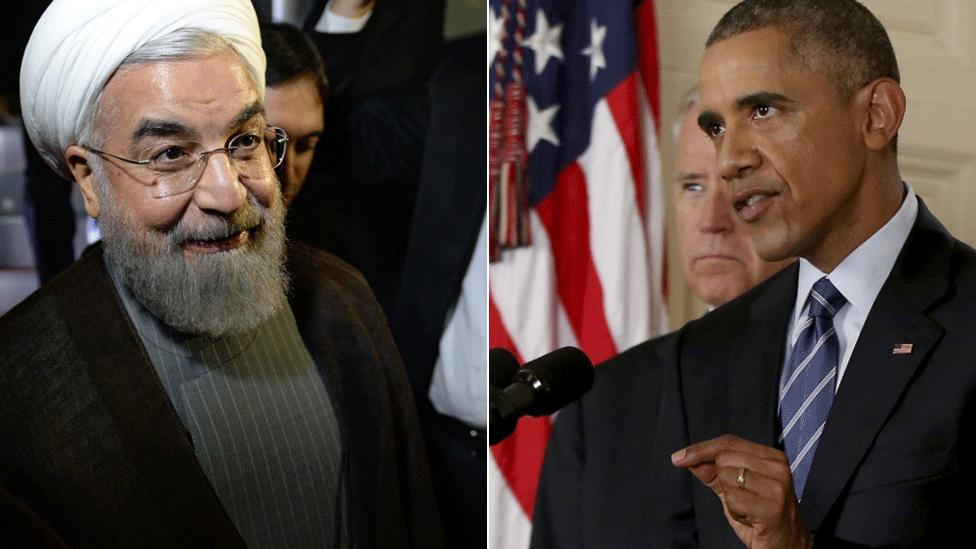
- Published14 July 2015
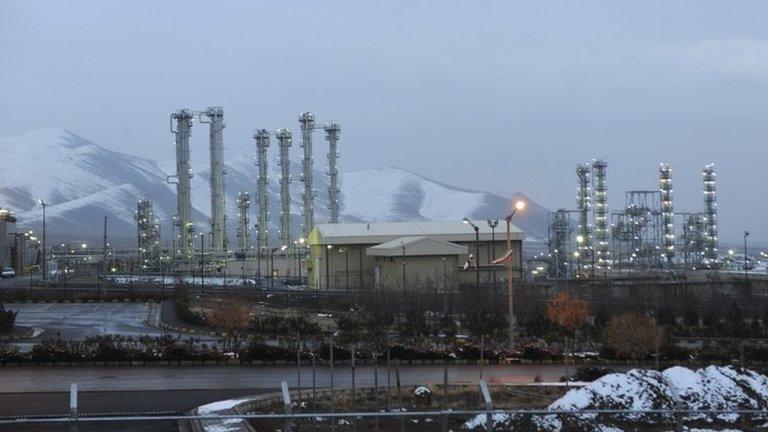
- Published14 July 2015
